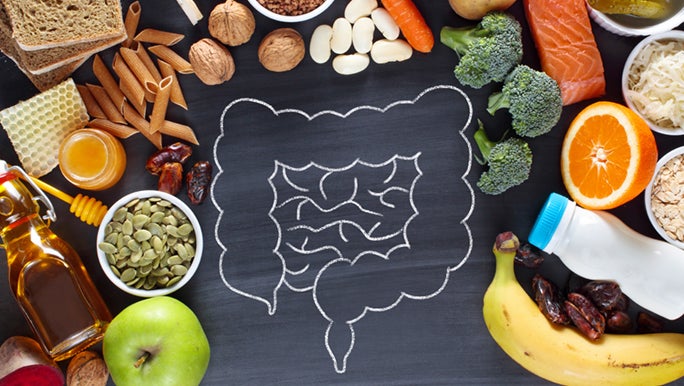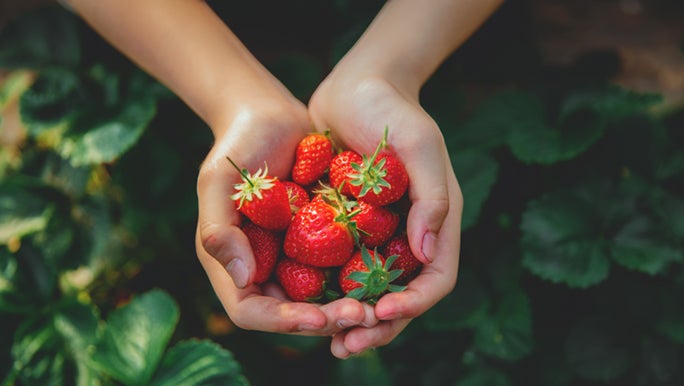OK, if there’s one thing the world of health is in agreement with right now it’s that gut health is important.
And not just for your gut. A host of recent research has linked the gut to mood, stress, immunity and so much more.
So it’s only natural that people have many questions about gut health foods.
The good news is, you don’t just need to up your intake of fermented foods for gut health - there is a range of other options too. Let’s take a closer look.
Gut health food
Have you ever heard of the gut microbiome? It’s the balance of microorganisms that help you break down, process and digest your food. The better your gut microbiome is functioning, the healthier your gut is.
Over the years, the gut microbiota has become the main area of focus for gastroenterology research.
And the big question is, how do we influence that microbiome? One way is by giving our guts the right types of foods.
You probably won’t be surprised to find out which foods are good for gut health, because they’re also the ones that are good for general health - all the unprocessed, naturally-occurring, colourful rainbows of goodness.
We realise this is a bit vague though, so we asked Dietitian Kate Agnew to give us the thumbs up, or down, on specific culinary choices.

A 2020 study found, “mushrooms have several bioactive compounds… that justify their use as prebiotics to promote the growth of intestinal bacteria and to induce beneficial effects in the health of the host.”
Are mushrooms good for gut health?
Kate says because mushrooms contain prebiotics, they can be a great gut health food.
And the research agrees. A 2020 study found, “mushrooms have several bioactive compounds, for example, polysaccharides such as xylans, galactans, β and α-glucans, and chitin, that justify their use as prebiotics to promote the growth of intestinal bacteria and to induce beneficial effects in the health of the host.”
And just as a side note, another study (that wasn’t published on April Fool’s Day) found that you can charge your mushrooms in the sun to up their vitamin D levels. Strange but true.

Strawberries aren’t just a prebiotic food. They’re also a great source of natural antioxidants.
Are strawberries good for gut health?
Strawberries contain prebiotics, so they’re another food source that can have a positive effect on gut health.
But strawberries aren’t just a prebiotic food. They’re also a great source of natural antioxidants, a wide variety of vitamins, minerals, flavonoids and phenolic acids - and they taste delicious. What’s not to love?
Are potatoes good for gut health?
The humble potato can promote good gut health, firstly because it contains prebiotics, and secondly because of a little thing called resistant starch.
Resistant starch (funnily enough) resists being digested in the upper intestine. This makes it a great source of food for the good bacteria in the large bowel. There’s a catch though - resistant starch is only present in potatoes when they’re cooked and cooled. This just backs up our opinion that potato salad is always a great idea.
Good foods are good
With so much research around gut health right now, you would think that lots of new diets and foods would be getting thrust into the limelight, right? Wrong. When it comes down to it, fruit, vegetables, non-processed grains and traditionally fermented foods are leading the charge. It turns out good food is still good food.
Ways to better gut health
Are you experiencing abdominal pain, bloating, constipation and/or diarrhoea? Have you wondered what you can do to best manage these symptoms? Join us for these short programs to help you discover the possible triggers for these symptoms and what to do next!
manage gut symptoms
Discover the possible triggers and solutions for gut symptoms.
simple FODMAP challenge
A gentle FODMAP approach with simple steps for following a low FODMAP diet. Coming soon.
Related:
Kate is an Accredited Practising Dietitian who is passionate about innovation and problem-solving in health & nutrition. Her goal/aim is to ultimately create a healthier environment for all Australians.
Reviewed by the healthylife Advisory Board May 2022.




